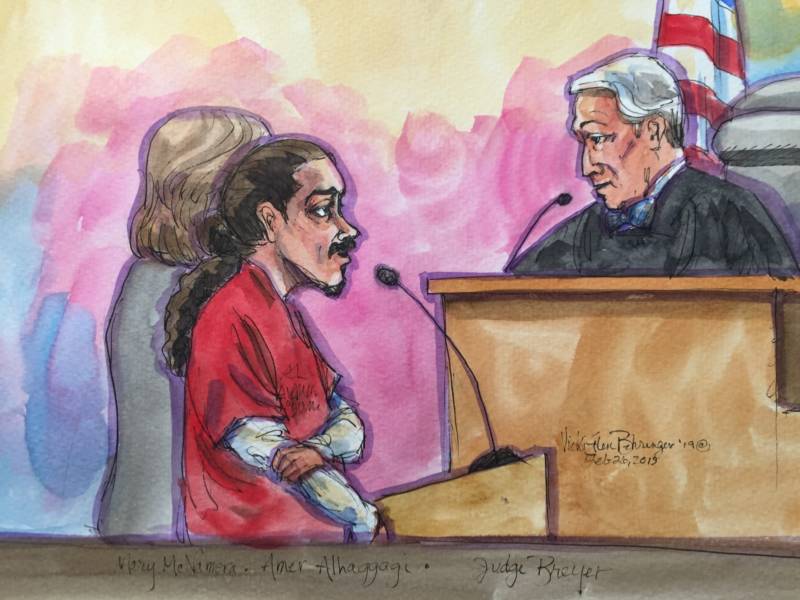The defense argued that Alhaggagi was never charged for any of the things he said to the FBI agent, or any of his ill-conceived attacks. Instead, and only after he stopped communicating with the agent, he set up several social media accounts for an Islamic State supporter in Iraq. The accounts, the government argued, were later used to spread terrorist propaganda — and it was that action that generated a federal terrorism charge.
"It was a totally different thing, it was an online thing, he regretted it and he stopped it," defense attorney Mary McNamara argued Tuesday.
Alhaggagi apologized in a brief statement before he was sentenced.
"I find it hard to look and listen to all the horrible things I said to the undercover agent," he said. "I can see why people, the FBI, got worried. I made myself look like a crazy person."
"I'm ashamed and embarrassed," he concluded.
His sentence also includes a two-year term for identity theft charges — he stole credit card numbers and used them to buy expensive clothes, according to court filings.
'Doesn't Sound Like a Jihadi'
Alhaggagi's status as an internet troll was a central issue to his case. His defense argued that he had retreated online after a series of failures in his life and was drawn to stoking arguments between Sunni and Shia Muslims online.
One of his chats about fanciful arms deals in summer 2016 alerted an FBI source, who then told Alhaggagi that a "cousin" (an undercover FBI agent) was on his way to Oakland for a meeting.
"Up until now, this had been an online game of chicken with the informant," McNamara said in court. "Now, someone was going to come out of the internet and appear in person."
She argued Alhaggagi kept up his internet persona in person, punctuating his talk of mass slaying with smiles and laughter, much like the "lols" and smiling emojies that peppered his chats.
"He doesn’t sound like a jihadi, doesn’t look like a jihadi, doesn’t act like a jihadi," McNamara said, adding that other cases involving terrorism charges generally don't involve juvenile jokes and emojies. "He’s a goofball, he’s a class clown, he’s a horrible little person when he’s trolling."
But Judge Charles Breyer noted a few actual steps Alhaggagi took to further his plans. He downloaded a bomb-making manual, found during a search of his electronics after he was arrested in November 2016. And he took photographs of supposed targets.
"He was willing to participate in these conversations with people other than government agents, and the consequences are enormous," Breyer said from the bench. "He may think it’s a joke, he may not have intended it, but the other person may not know it’s a joke. The other person may intend it."

